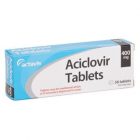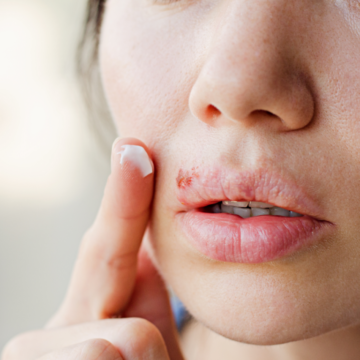Let’s get rid of the stigma. Herpes Simplex Virus (HSV), or herpes, is very common.
It can be divided into 2 categories, HSV-1 and HSV-2. HSV-1 is mainly transmitted by oral to oral contact causing oral herpes, more commonly known as ‘cold sores’, but can also cause genital herpes through oral-genital contact. HSV-2 is a sexually transmitted infection (STI) causing genital herpes, affecting both the genital and anal areas.
According to the World Health Organisation, an estimated 3.7 billion people worldwide under the age of 50 (67%) have HSV-1 infection, while an estimated 417 million between the age of 15-49 (11%) have HSV-2 infection. In the UK 7 out of 10 people have caught one of them by the age of 25.
<
What to expect once infected
Most people who have herpes are unaware, as both HSV-1 and HSV-2 infections mostly present with no symptoms but can cause mild symptoms, or painful blisters and ulcers at the site of infection. Symptoms might not appear for weeks or even years after infection, with some people never having any symptoms at all.
Symptoms may start with mild tingling and itching around the infected area. The glands in the groin or neck may become swollen and people may experience ‘flu-like’ symptoms. Some people also experience pain when they pee. Small blisters or ulcers appear – ranging from one to many. These burst within 24-48 hours leaving red, sometimes painful areas, which usually crust over and heal within 3 to 10 days.
Anyone who suspects they have contracted herpes should attend a Sexual Health Clinic. The diagnosis is confirmed by rolling a swab over the ulcer and testing it. This test cannot be done if the person attending has no ulcers present. This test can also not confirm for how long or from who they got the infection from. All visits remain confidential with no medical information being shared, unless instructed to do so by the patient.
Treating the Primary Infection
There is no cure for for herpes. Symptoms usually clear up by themselves within 2 to 3 weeks of the first infection. You may be prescribed antiviral oral medication which can speed up the healing process and lessen the severity of the symptoms experienced. The most commonly used one is called Aciclovir and must be taken within 5 days of the symptoms appearing. There are also antiviral cream available but tests show they have little effect.
Self Care:
• Take regular pain relief such as paracetamol and ibuprofen as directed
• Applying cold packs wrapped in a towel helps the pain. NEVER apply direct ice to the area
• Urinate while pouring cool water over the affected area
• Apply vaseline or numbing cream (5% lidocaine) to ease pain, particularly when urinating
• Wash your hands before and after any cream application
• Avoid tight clothing that may cause irritation
• Avoid touching the infected area unless applying cream
• Avoid oral, vaginal and anal sex until all sores have gone away
Treating Recurrences and Outbreaks
About half of those diagnosed with herpes will experience symptoms once or twice. Others may experience more frequent recurrences. These symptoms usually get milder and easier to deal with over time, and may even stop. For those with frequent recurrences it may also be possible to identify causes, also known as ‘triggers’. Potential common triggers include stress, menstruation, sunlight and the common cold.
Most people find the symptoms manageable over time and find their bodies deal with them adequately. For those that have more frequent outbreaks or find the symptoms unacceptable, they may benefit from taking regular antiviral oral medication (Aciclovir) from 6 to 12 months along with continuance of self care.
REFERENCES
- WORLD HEALTH ORGANIZATION (31st January 2017), Herpes simplex virus. Available from: <https://www.who.int/news-room/fact-sheets/detail/herpes-simplex-virus>. [Accessed 07 April 2019].
- NATIONAL HEALTH SERVICE (06 September 2017), Genital herpes. Available from: <https://www.nhs.uk/conditions/genital-herpes/#>. [Accessed 07 April 2019].
- Gupta R, Warren T, Wald A. Genital herpes. Lancet. 2007;370(9605):2127–37. Available from: <https://www.ncbi.nlm.nih.gov/pubmed/18156035>. [Accessed 07 April 2019).




